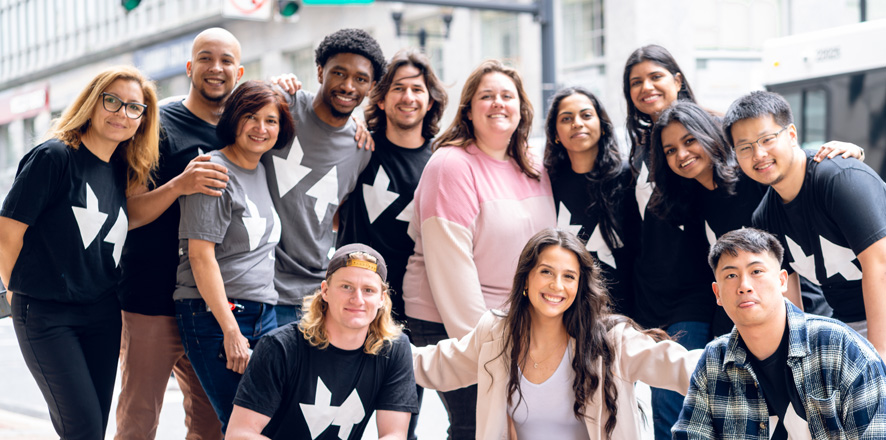As head of Uber’s hiring growth team, Bob Cowherd is always seeking innovative ways to recruit engineers. The hitch with traditional hiring — resume, phone interview, in-person interviews, in-house tests — is that “only very far into the interviewing process do you see how talented the candidate is,” he said.
So he was intrigued by San Francisco startup CodeFights, which crafts programming challenges for online competitions. Uber worked with CodeFights to develop a timed, competitive coding game called UberBot, tailored to its ride-hailing app: figure out the optimal route for a car or the best match for passengers splitting a ride, for instance.
“We thought it would be a way to flip recruiting on its head,” Cowherd said. “This moves the raw-talent test piece up to the very first step in the process.”
As tech companies grow at breakneck speed, they often must hire at a similarly feverish pace. That’s led many of them to use online games to help find and assess candidates. Hackathon auditions for jobs aren’t new — Google’s Code Jam competition is in its 13th year, for instance — but they are picking up steam in an increasingly competitive hiring market. San Francisco startups CodeFights and Lytmus are the latest entrants into the field, called recruitment gamification.
‘A wider net’
“The hardest problem many companies face is growing their team,” said Abhay Parekh, CEO and co-founder of Lytmus, which just created a four-step system for finding talent, including game-like challenges. “We help employers cast a wider net than just the same old overfished talent pools — and also make things a little more fair for people who want to work at these companies.”
Recruitment gamification “is powerful and useful,” said Josh Bersin, a principal at Deloitte Consulting LLP in Oakland, who has studied the trend. “It’s not a substitution for interviewing people and other forms of assessment, but can give employers a sense of how a candidate might behave in a real work environment, and give candidates a sense of whether they really want the job.”
Karl Kapp, a professor at Bloomsburg University in Pennsylvania and author of the book “The Gamification of Learning and Instruction,” said games for employee screening have several advantages: They can provide objective assessments of skills, show how people perform under pressure, and attract candidates who like challenges.
CodeFights started as an educational tool for learning math (its original name was MathFights), then morphed into coding education, and two months ago added the recruitment aspect. It already has drawn Uber, Dropbox, GoDaddy, Asana and Instacart as clients, it said. The company has $2.4 million in seed funding.
CodeFights works with clients’ engineers to develop custom games, and is compensated just like a headhunter when a competition leads to a hire. Candidates who “win” a game are invited to submit an application online. Within six weeks of the UberBot’s release, about 20,000 people took the challenge, of whom 700 applied for jobs. Uber said it’s too soon to say how many will end up joining its ranks of 1,200 engineers.
“Instead of spending engineers’ and recruiters’ time to find good candidates, we do all that work for them in a way that’s fun for the applicant,” said Tigran Sloyan, CodeFights CEO and co-founder.
Beyond recruiting
Still, he sees CodeFights’ mission as broader than recruitment. “We are an educational company,” he said. “People use CodeFight to practice their coding skills; getting a job is a side effect.”
Sloyan also hopes to make coding a spectator sport. “Of course, it’s not like football where there’s a lot of of physical action,” he said. “But poker and chess are widely popular to watch and there’s no action, just a bunch of nerdy people around a table.”
CodeFights runs monthly marathons that draw thousands of engineers worldwide. It will sponsor a real-life tournament, the California Collegiate Coding Competition, at UC Berkeley in early 2016, bringing in teams from California universities to vie for “glory and significant prizes,” Sloyan said.
Lytmus, by contrast, is aimed purely at recruitment. With $7.2 million in venture backing, it created tools for a prescreen, phone screen, online coding challenge and then a hands-on project during the in-person interview.
“We try to make it as realistic as possible,” Parekh said, tailoring the games to each company’s business. “It’s a flight-simulator approach to evaluating people.“
Lytmus’ client roster includes Pinterest, Okta and PocketGems.
“Our engineers don’t spend a lot of time inverting binary trees, so asking candidates to do that is counterproductive,” said Dave Cummings, a software engineer at Pinterest. “Lytmus provides real-world challenges and allows candidates to code solutions for technical problems they might actually encounter at Pinterest.”
Other fields
Beyond tech talent, Parekh said, Lytmus will expand into recruiting for fields like financial analyst, accountant and customer support — “any profession where you have to use a computer to accomplish your task.”
Kapp said games work best for judging candidates’ skills in fields like programming. “Soft” skills like leadership and customer relations are more difficult to judge through the prism of a game — although companies are definitely trying. He expects the field to continue to burgeon. Other companies working on games for recruiting include HackerRank, Starfighter, TopCoder, Knack, Pymetrics and Codility.
“There are lots of candidates we probably wouldn’t have found through traditional recruiting,” said Uber’s Cowherd. “We wouldn’t necessarily look at college seniors in Bulgaria, for instance. For the candidate, it gives the opportunity to show us your stuff and to experience what it’s like to solve the problems we work with on a daily basis. By solving the problem and having some fun with it, someone might discover, ‘Oh wow, I really enjoy this.’”
Carolyn Said is a San Francisco Chronicle staff writer. E-mail: csaid@sfchronicle.com Twitter: @csaid
This article was written by Caroline Said, and appeared originally on SFGate.
